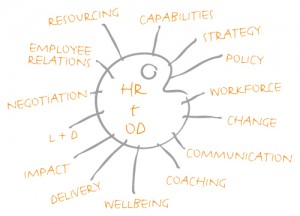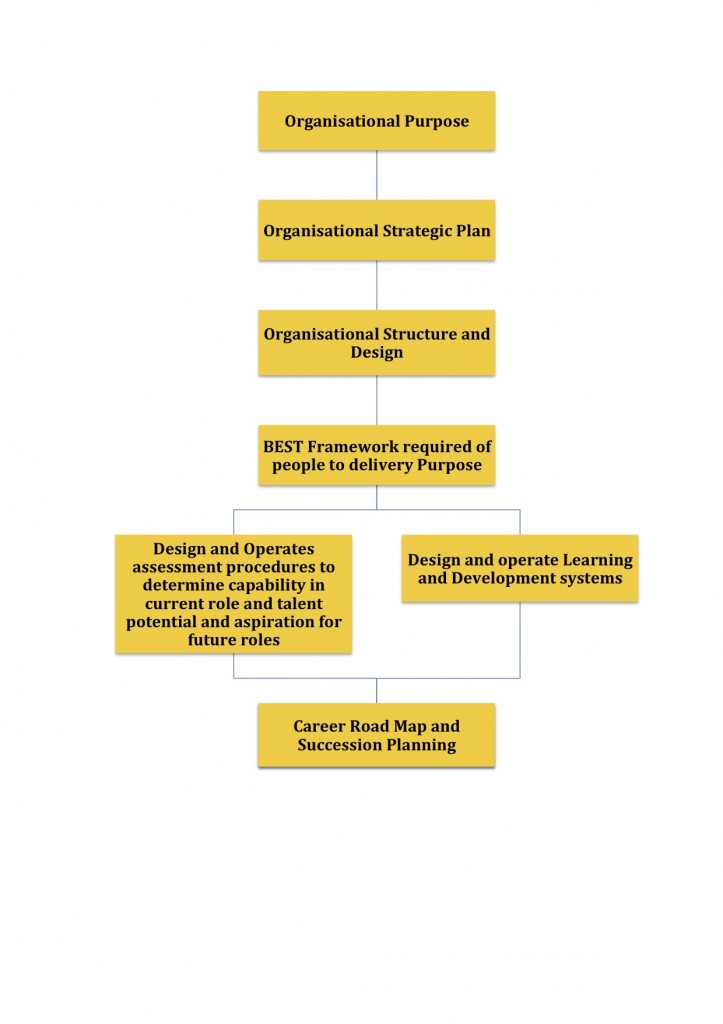OD & HRM
Human Resources Managers are increasingly being expected to take the lead in organisational change activities. HRM, HRD and OD disciplines are all founded on the belief of self-renewal, and seek to build flexible and adaptable capability in both individuals and the organisation. In the 2011 the CIPD stated;
“Practitioners are beginning to deliver differently and to link Learning and Talent Development to change and organisational development. They are looking to build capability and lift performance through interventions such as coaching and leadership development.”
As HR has shifted from it ‘tea and tissues’ reputation to demanding a seat at the boardroom table with Strategic HRM, the function has sought to become more strategic, proactive, commercial and professional. This shift now requires HR practitioners to deliver short-term HR functional activity alongside equipping the organisation for sustainable performance in the long term – through its people.
This shift has meant that HR’s agenda has expanded to include all aspects of people processes which can deliver organisational effectiveness; the right people, the right culture, the right leadership, the right organisation design, the right change management and the right people processes.
Through all these activities there are OD threads including;
- Change management
- Strategic Organisation system alignment
- Capability Development
- High Performance Culture Development
- Long Term Perspective
HR and OD therefore, have a number of things in common. Through utilising systems thinking, HR and OD practitioners can work together to support the organisation in its pursuit of sustainable long term performance. As HR takes on an increasingly transformational role, OD will enable HR professionals to:
- support transformation
- work on organisation design
- design and deliver learning and development interventions
- support clients in major change and organisation design projects
- analyse and improve the overall health of the organisation
- keep the organisation healthy and fit for future challenges.
And HR can best deliver effective OD through line managers; these are the primary practitioners of organisational development. Leaders hold the custodian role, safeguarding and improving organisational health and performance. HR needs to work closely with senior leaders, turning them into commissioners of OD who are able to diagnose and understand their impact and role in improving organisational health, who appreciate that an organisation is a human system, not just a technical system.
HR needs to ensure that leadership capabilities are transformational, not just transactional. Leaders need to add to their ability to interpret the data on the horizon to manage the environment, form effective strategies and delineate organisation performance outcomes. They need to make sure their organisations stay relevant to their key stakeholders, with further ability to focus inward so that the vision, mission and culture of the organisation are aligned. And they need to be able to understand sufficient human dynamics to make sure that sufficient and robust processes exist within the organisation culture and practice to inspire people to come along with them. In other words, leaders need to ensure that the organisation’s internal capability matches the strategic ambition.



